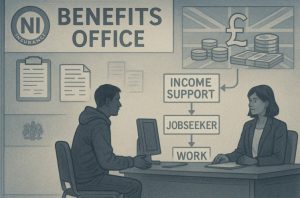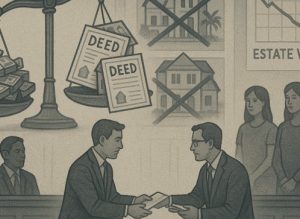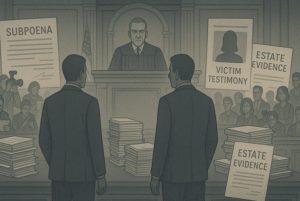Jeffrey Epstein’s name continues to provoke controversy years after his death. A once-powerful financier with high-profile connections, Epstein left behind a sizeable estate entangled in legal complexities and public scrutiny.
As of 2025, the world is still asking: Who inherited Jeffrey Epstein’s estate, and where is it now? The answer involves a mix of secretive trusts, legal manoeuvres, victim compensation funds, and ongoing court battles.
What Was the Estimated Value of Jeffrey Epstein’s Estate at the Time of His Death?

At the time of his death in 2019, Jeffrey Epstein’s estate was estimated at around $600 million. This substantial fortune was derived from a mix of real estate holdings, offshore financial accounts, investment portfolios, luxury assets, and private companies.
A breakdown of some of the primary assets includes:
- A townhouse in Manhattan listed for $88 million
- A private island in the U.S. Virgin Islands known as Little St. James
- Residences in Paris, Palm Beach, and New Mexico
- Investments through shell companies and offshore trusts
The complexity of Epstein’s financial arrangements, including the use of multiple jurisdictions and confidential entities, made it difficult to gain a clear understanding of his full wealth at the time of his death.
Epstein’s Notable Assets in 2019
| Asset Type | Estimated Value (USD) | Location |
| Manhattan Townhouse | $88 million | New York, USA |
| Little St. James | $63 million | US Virgin Islands |
| New Mexico Ranch | $17 million | New Mexico, USA |
| Paris Flat | $8.5 million | Paris, France |
| Palm Beach Property | $12 million | Florida, USA |
| Southern Trust Co. | Undisclosed | US Virgin Islands |
| Total Estimate | $600 million (approx.) |
Who Were Named in Jeffrey Epstein’s Will and Estate Documents?
Jeffrey Epstein’s estate planning drew intense attention following his death, particularly due to the unusual timing and structure of his legal documents.
Just two days before he was found dead in his Manhattan jail cell in August 2019, Epstein signed a new last will and testament. This final will effectively transferred control of his entire estate into a private entity known as the 1953 Trust, named after the year of his birth.
This move immediately raised legal and ethical questions. Trusts are often used to manage estate taxes, protect assets from creditors, and keep financial matters private.
However, critics argued that Epstein’s last-minute will appeared designed to shield his fortune from the hundreds of legal claims he anticipated from victims and other litigants.
Though such legal strategies are not uncommon among wealthy individuals, the context of Epstein’s case made the decision especially controversial.
The 1953 Trust was created as a revocable trust, meaning Epstein could have changed or dissolved it had he lived. In this document, he did not name specific public heirs. Instead, he appointed two longtime associates to control his assets and affairs:
Executors and Trustees
- Darren Indyke: Epstein’s personal attorney for over two decades. He handled many of Epstein’s legal filings, property transactions, and charitable foundation registrations. Indyke was named co-executor of the estate and later assumed the role of co-trustee of the 1953 Trust.
- Richard Kahn: Epstein’s accountant and financial advisor. He played a central role in managing Epstein’s complex network of offshore companies and financial vehicles. Like Indyke, he was named as both co-executor and co-trustee.
The roles of Indyke and Kahn have been heavily scrutinised. Both men have faced lawsuits and public criticism, accused of knowingly facilitating Epstein’s illicit operations.
They deny wrongdoing but remain under legal pressure, including from a pending Manhattan lawsuit that could affect their control over the estate.
Confidentiality of Beneficiaries
One of the most debated aspects of the 1953 Trust is the secrecy surrounding its beneficiaries.
Under U.S. trust law, particularly in jurisdictions like the U.S. Virgin Islands where the trust is believed to have been registered, the names of beneficiaries do not need to be publicly disclosed.
This means that while the executors and legal filings are on the record, the identities of those set to inherit Epstein’s remaining fortune are hidden from public view.
Despite this confidentiality, court proceedings, creditor claims, and investigative journalism have identified a few individuals who are likely connected to the trust’s potential distributions:
- Mark Epstein: Jeffrey Epstein’s only known sibling and a frequent figure in related court documents. While not directly named in the trust, Mark is believed to be a primary beneficiary. He has historically distanced himself from his brother’s business activities but inherited part of the estate’s early property proceeds.
- Karyna Shuliak: A Belarusian-born dental student and Epstein’s long-term girlfriend at the time of his death. Shuliak reportedly received financial support from Epstein while he was alive and may be listed as a beneficiary of ongoing trusts or financial instruments tied to his estate.
The Legal Significance of the Trust Structure
By placing his assets into the 1953 Trust, Epstein attempted to manage his estate’s administration privately and without direct court oversight, which is common in estate planning for wealthy individuals.
However, the sheer scale of claims against his estate forced extensive legal disclosures and judicial intervention.
The trust structure may have offered limited protection initially, but courts in both the U.S. mainland and the Virgin Islands quickly ruled that victims’ claims and government lawsuits took priority over any private beneficiary interests.
Therefore, while the named executors retained control, the majority of Epstein’s assets were first subject to liquidation and legal settlement before any inheritance could be processed.
In essence, although Epstein’s estate was structured to favour privacy and control, the combination of high-profile litigation, ongoing investigations, and public outrage has rendered much of the estate’s administration highly visible and deeply contested.
How Was Jeffrey Epstein’s Wealth Affected by Legal Settlements?

The dramatic decline in Jeffrey Epstein’s estate following his death was primarily the result of extensive legal settlements linked to his long history of sexual abuse, financial fraud, and criminal conspiracy.
While Epstein’s net worth at the time of his death was estimated at roughly $600 million, that figure quickly began to shrink as legal claims flooded in from victims, governments, and other parties with outstanding grievances.
The Epstein Victims’ Compensation Fund
One of the most significant financial impacts on the estate came from the creation of the Epstein Victims’ Compensation Program (EVCP). This fund was voluntarily established by the estate in 2020 to provide monetary compensation to the numerous women and girls who had been exploited by Epstein over the course of several decades.
- More than 200 individuals filed claims through the programme
- Over $170 million was distributed in total compensation
- Payouts varied depending on the severity, documentation, and circumstances of each victim’s case
The fund was administered independently and operated under the scrutiny of legal counsel and media, ensuring transparency in a process that was often sensitive and traumatic for the participants.
It was designed to offer a non-litigation path to compensation, which avoided years of court battles and helped expedite justice for many survivors.
However, the sheer volume and scale of the payouts represented a major reduction to the estate’s financial standing and set the tone for other claims that would follow.
Civil Settlement with the U.S. Virgin Islands
The estate was also subject to legal action by the Government of the U.S. Virgin Islands, where Epstein owned his private island, Little St. James, and operated several shell companies. In 2020, the Virgin Islands Attorney General filed a civil racketeering lawsuit against the estate, citing:
- A decades-long pattern of criminal activity tied to human trafficking
- Fraudulent use of local tax incentive programmes
- The operation of shell companies and sham organisations to conceal abuse
After years of negotiations and court motions, the estate agreed to pay $105 million to settle the lawsuit in December 2022. This settlement was viewed as both a financial and symbolic admission of wrongdoing, although the estate did not formally acknowledge any liability.
The Virgin Islands government argued that Epstein defrauded the territory by misrepresenting the purpose of his business operations to obtain nearly $73 million in tax incentives through the Southern Trust Company and other entities.
This particular settlement had implications beyond the direct financial hit. It contributed to the decline in value of Epstein’s properties in the Virgin Islands, including Little St. James, which faced difficulty selling due to the stigma associated with the site.
Legal and Administrative Fees
In addition to the structured settlements, the Epstein estate faced mounting legal and administrative costs. Due to the complexity and global scope of Epstein’s finances and misconduct, the estate required extensive legal services including:
- Ongoing litigation management
- Compliance with international and domestic regulatory bodies
- Liquidation of assets across multiple jurisdictions
- Response to subpoenas and financial audits
By early 2024, it was estimated that legal fees, taxes, and administrative costs had consumed an additional $50 million or more of the estate’s value. These costs were necessary to unravel the extensive network of offshore entities and shell corporations Epstein used to hide assets and evade scrutiny.
Delayed Asset Liquidation and Depreciation
Another important factor that contributed to the estate’s financial decline was the delay in liquidating major assets, many of which underperformed at sale.
Properties such as his Manhattan townhouse and his ranch in New Mexico took longer than expected to sell and were ultimately sold at prices significantly lower than their valuations.
This depreciation occurred for several reasons:
- Public outrage and reputational damage associated with Epstein’s properties
- Legal complications in transferring ownership
- Decreased market demand for properties linked to criminal activities
The estate had initially projected higher returns from these sales, and the lower-than-expected realisations resulted in tighter cash flow, further stressing the estate’s ability to meet its obligations in a timely manner.
Financial Summary of Settlements
These major settlements and financial penalties can be summarised as follows:
| Legal Expense Type | Estimated Cost (USD) |
| Victims’ Compensation Fund | $170 million |
| US Virgin Islands Settlement | $105 million |
| Legal & Administrative Fees | $50 million (estimated) |
| Total Legal Outgoings | $325 million (approx.) |
By the end of 2023, these expenses had brought Epstein’s estate to a low of under $40 million, despite it being one of the largest privately held fortunes to face court-administered redistribution in recent history.
Although the estate later received a tax refund that replenished some of its funds, the legal settlements were the most significant and publicised factor in the depletion of Epstein’s wealth.
The magnitude of these settlements illustrates how the legal system was able to partially dismantle a complex and secretive financial empire, redirecting its wealth toward justice and restitution for those affected by Epstein’s crimes.
What Role Did the Southern Trust Company Play in the Estate Disputes?

The Southern Trust Company, based in the U.S. Virgin Islands, played a critical role in the controversy surrounding Epstein’s estate.
It was originally presented as a data analytics and DNA research firm, but investigations suggested that it was primarily used to gain access to financial incentives offered by the Virgin Islands government.
Officials accused the company of misrepresenting its business operations to obtain over $73 million in tax benefits. These claims became central to the civil racketeering case settled in 2022, where the estate agreed to a $105 million payout.
Further analysis of Southern Trust revealed that it was interlinked with other shell companies under Epstein’s control.
These companies reportedly moved funds internationally and disguised the nature of their transactions, raising further questions about financial misconduct.
How Did the Epstein Estate Receive a $112 Million Tax Refund?
In 2020, Epstein’s estate made an estimated $190 million in pre-emptive tax payments based on the expected returns from asset liquidations. However, many assets sold for significantly less than anticipated.
- The Manhattan townhouse, initially listed at $88 million, sold for $51 million
- The New Mexico ranch failed to attract high bids
- Several other assets performed poorly due to market conditions and reputational damage
The actual realised value of the estate’s assets was far lower than projected, leading to an overpayment in taxes. In early 2025, the U.S. federal government issued a $112 million refund to the estate to correct the tax discrepancy.
This refund temporarily boosted the estate’s value to around $150 million, offering a potential financial cushion for remaining obligations and eventual distributions to trust beneficiaries.
Who Are the Possible Beneficiaries of Jeffrey Epstein’s Remaining Assets?
The full list of individuals who will benefit from Epstein’s trust has not been disclosed publicly. However, several figures are frequently mentioned in court filings and investigative reports.
- Mark Epstein is considered a primary beneficiary due to his familial connection
- Karyna Shuliak, a known close associate, reportedly received financial support before Epstein’s death
- Darren Indyke and Richard Kahn, as co-trustees of the estate, are expected to benefit from administrative fees and possibly additional distributions
These possibilities have raised ethical concerns due to the involvement of certain individuals in the management of the estate and their connection to Epstein’s criminal enterprise.
Only once all remaining legal matters are resolved can the trust assets be distributed fully. For now, the exact identities of the inheritors remain speculative.
What Legal Cases Are Still Open Against the Executors of Epstein’s Estate?

Despite major claims being resolved, ongoing litigation continues to affect the estate’s final disposition. A federal lawsuit filed in Manhattan in late 2024 accuses executors Darren Indyke and Richard Kahn of knowingly assisting Epstein in his crimes.
This civil case includes accusations such as:
- Aiding and abetting sexual abuse by concealing financial transactions
- Helping to maintain the organisational structure that enabled the abuse
- Misusing their fiduciary roles for personal gain
The outcome of this lawsuit could affect both the timeline and eligibility of the remaining estate distributions. If the claims are upheld, court-imposed restrictions could limit or deny any benefits to the executors.
Where Does the Epstein Estate Stand Financially in 2025?
By mid-2025, the Epstein estate is estimated to hold approximately $150 million in value, boosted by the previously mentioned tax refund. Most of the legal claims from victims and government entities have been resolved.
The current financial standing includes:
- Liquid assets remaining from the tax refund and unsold holdings
- Smaller creditor claims and administrative costs pending
- Delays in final disbursement due to the unresolved Manhattan lawsuit
Once the final claims are addressed, the estate will move forward with funding the 1953 Trust. From that point, disbursement to the trust’s beneficiaries will be executed under the oversight of its trustees, Indyke and Kahn.
While much of the financial landscape has stabilised, legal scrutiny continues to delay the closing of one of the most complex and scrutinised estates in recent American history.
Conclusion
The saga of Jeffrey Epstein’s estate illustrates the tangled web of offshore trusts, litigation, and controversy that often surrounds the fortunes of disgraced public figures. Despite attempts to shield his wealth, courts and victims have made significant inroads into holding the estate accountable.
The ongoing legal scrutiny of his executors underscores a broader question: should those associated with wrongdoing profit from it? While most of Epstein’s victims have received some form of compensation, the final chapter of this story is still being written in courtrooms and trust documents.
FAQs
How much was Jeffrey Epstein worth when he died?
Jeffrey Epstein was worth an estimated $600 million at the time of his death in 2019, though this figure quickly diminished due to settlements and legal costs.
Did Jeffrey Epstein leave any money to his victims?
Yes. Over $170 million was distributed to more than 200 victims through the Epstein Victims’ Compensation Fund, established in 2020.
What happened to Epstein’s properties?
His properties were sold off as part of the estate liquidation process, including his Manhattan townhouse and private islands. These sales raised less money than originally anticipated.
Is Jeffrey Epstein’s estate still being contested?
Most claims have been settled, but a few legal cases remain open, including a federal lawsuit against the estate’s executors for alleged complicity in Epstein’s crimes.
Why did the estate get a tax refund?
The estate overpaid taxes in 2020 based on estimated asset values. When the actual sale prices fell short, the estate qualified for a $112 million refund in 2025.
Are Epstein’s lawyers benefiting from his estate?
Darren Indyke and Richard Kahn, his longtime lawyer and accountant, are co-trustees of his estate trust and potential beneficiaries, despite allegations of wrongdoing.
What role did Mark Epstein play in the estate?
Mark Epstein, Jeffrey’s brother, is believed to be a beneficiary of the trust and was referenced in the estate documents, although exact details remain confidential.






